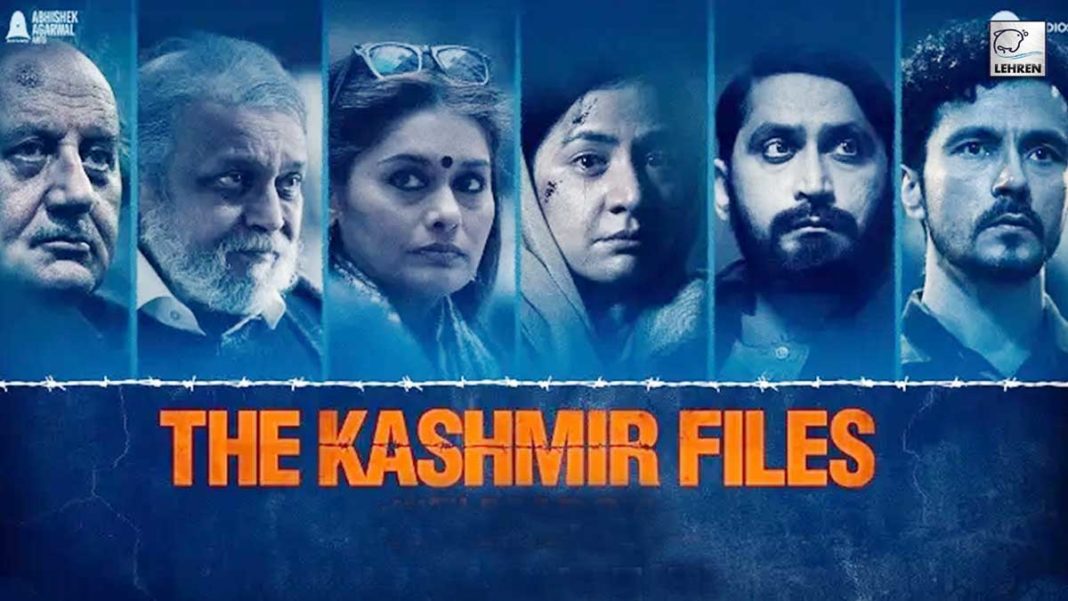There are two ways of watching The Kashmir Files.
One, with pure passion. It’s imperative that the world hears the gut-wrenching story of the genocide of 1990 that history has so far refused to record.
The 1984 Sikh riots have had their primetime and cinematic moments (Hawayein by Amitoj Mann and Amu, the Konkona Sen starrer), although their perpetrators still roam free and justice has not been delivered to this day. Slanted narratives on the 2002 riots in Gujarat damning the majority community have also been sporadically filmed (Rahul Dholakia’s Parzania, Nandita Das’ Firaaq), picking up applause and awards over the years.
Wherever they occur and whoever the victim, all genocides must be condemned as they have been in the past.
But for reasons largely political, the murderous rant of ‘Ralive, Tsaliv ya Galiye’ (convert to Islam, flee or perish) that led to the mass massacre of Kashmiri Pandits and to their enforced exodus from their ancestral homes, has never been given centrestage by history or the arts. Except for Sheen, a film by Ashoke Pandit that unfortunately went unnoticed in 2004.
32 years after the genocide and ‘ethnic cleansing’ that changed the demographics of Kashmir, Vivek Ranjan Agnihotri wades in with a mound of authentic research, lays bare the wounds, and films it all with the brutality it deserves.
In the 1990s, when Article 370 prevailed, Kashmir enjoyed special status, most political dynasties had pro-Pak sympathies and supped with terror, the valley resounded with lusty slogans of ‘Azadi’ and abounded with graffiti of ‘Indian dogs go home’.
Against this history, children play a cricket match with an Indo-Pak commentary blaring out of a transistor. Until Shiva, one of the cricket-playing kids, cheers Sachin Tendulkar and there’s a communal flare-up.
Also Read: The Kashmir Files Beats Radhe Shyam On IMDb
The tranquility of the village is pierced. The pressure-cooker of simmering communal hatred blasts off.
Vivek’s authentic documentation of events as they truly unfolded includes:
The gunning down of entire families and silencing wailing babies with a bullet. It’s been related without exaggeration, there are searing eye-witness accounts of it and the film uses it as a closing shot.
The rape and humiliation of women of all ages. It’s shown, in all its cruel rawness.
Kayar ya akalmand? Cowardice or survival smarts? A Kashmiri Pandit, prodded to pragmatism by his wife, hides in a barrel of rice until he’s ratted out by a neighbour. When terrorist Farooq Malik Bitta (Chinmay Mandlekar) shoots enough holes in the barrel for blood to mix with the rice, the dead man’s wife has an option: eat a handful of the bloodied rice if you want to save the rest of your family. It’s not cinematic drama, it was a reality. Watch it if you can.
After Bitta, the student-turned-terror leader force feeds Sharada (Bhasha Sumbli) with the rice and spares the family, watch patriarch Pushkar Nath (Anupam Kher) with his makeup on Mahashivratri, flee with her and grandchildren, Shiva and Krishna, still an infant. Watch the inhumanness of the refugee camps callously ignored, even humiliated by the netas of the day.
They are all unvarnished, chronicled facts.
Pooh-poohed for decades by a deep nexus between terror, politics and a complicit media.
Vivek Agnihotri relives and retells the horrors of the 90s through a grown up Krishna Pandit (Darshan Kumar) who’s been brainwashed by bindi-sporting Professor Radhika Menon (Pallavi Joshi). An activist with the ‘Azadi’ brigade on the politically infested Delhi campus, Krishna is unaware of the horrifying truth about his family.
Until he goes back to Kashmir with his grandfather, Pushkar’s arthi (ashes).
And he meets a bunch of retired Kashmiris. IAS officer Brahma Dutt (Mithun Chakraborty), a cop (Puneet Issar), a doctor (Prakash Belawadi) and a media man (Atul Shrivastava) who had all played their parts in being helpless onlookers to the genocide of 1990.
Krishna meets Farooq Malik Bitta too. The terrorist who remorselessly went on Indian TV, accepted that he’d killed Kashmiri Hindus and roamed free with impunity.
Given the stark horror that visited the Kashmiri Pandits in 1990, The Kashmir Files is a vital document that needed to be filed in the public space and therefore defies a conventional rating.
**
The second way of watching TKF is dispassionately cinematically where one feels wistful and wishes that the storytelling had been far more impactful.
The narration loses much of its intended sharpness with flashbacks and a structure that raises questions instead of packing a wallop.
Why Krishna was allowed to grow up and throw his all with the very people who massacred his family, is unclear.
Why the ageing foursome, led by Brahma Dutt, insist on an elaborate cover-up and hide the truth from Krishna, is self-defeating when their very frustration was that the genocide was never given its importance in the public domain. Nor was justice sought for its victims.
Unveiling the bitter reality through Krishna’s self-discovery was a great way to tell the story of what really happened in Kashmir and to Kashmir. Particularly moving was Krishna looking at a group photograph and wondering who out there were his parents.
Must Read: Vivek Agnihotri & Kunal Kamra Get In A Fight Before Release Of ‘The Kashmir Files’
But the overlong and non-linear screenplay doesn’t give the satisfaction of seeing Krishna’s complete arc, his journey from darkness to light needed to be told with more precision.
Heart-piercing music that lingers instead of poetry that only wails, would’ve also made it more poignant.
For sure, the last sequence of the family that was massacred is stark. But perhaps needed to be placed earlier.
Watch TKF for outstanding performances by Anupam Kher, Darshan Kumar, Chinmay Mandlekar and Pallavi Joshi.
And watch it simply because this is a long overdue story that needed to be told.

